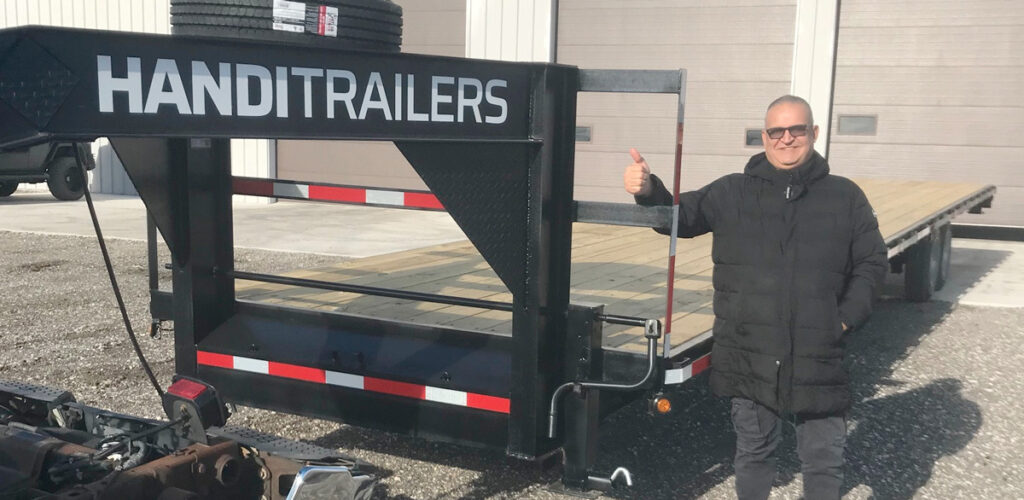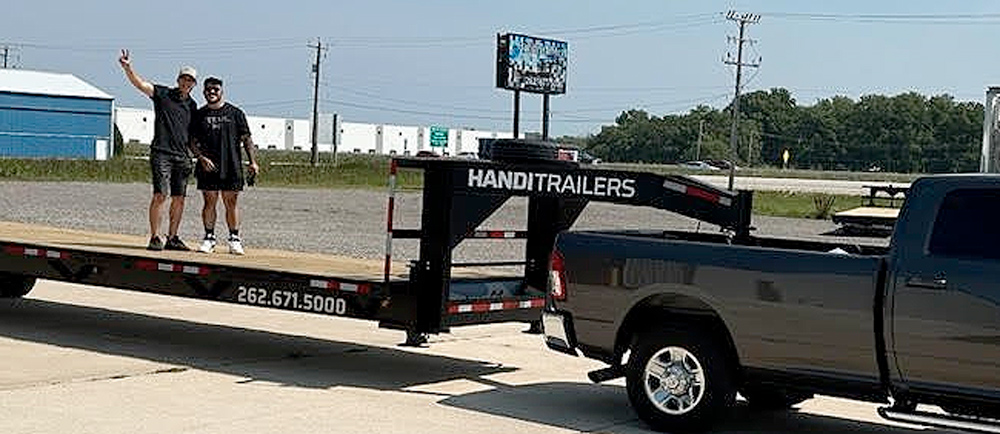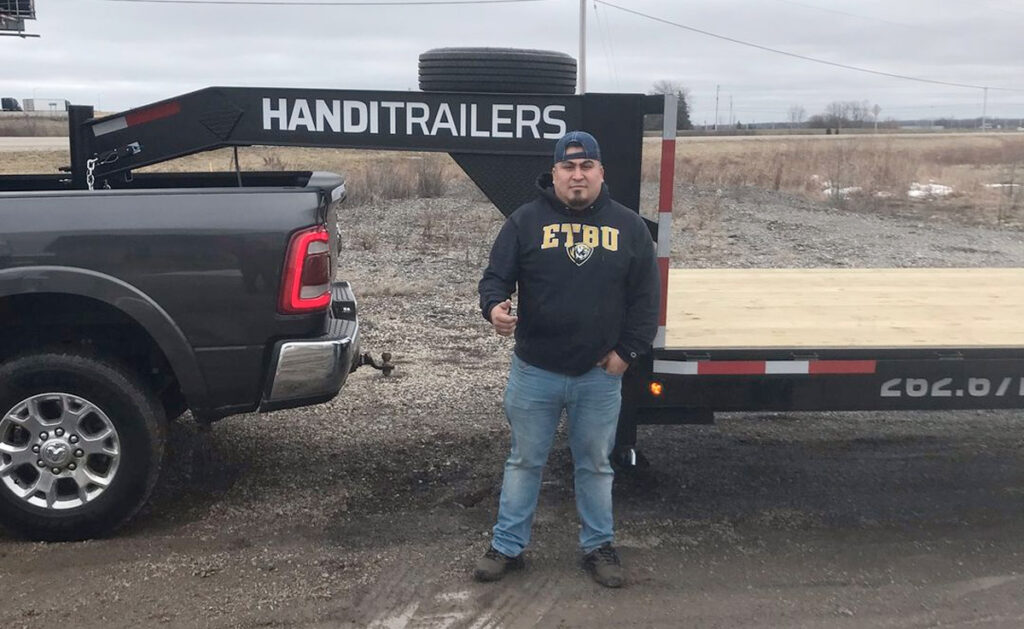How to determine what GVWR is right for you, and what the ROI is for going up to a higher GVWR

So, you’re on the brink of joining the exciting world of hauling with your first trailer. Congratulations! But before you hit the road, whether you’re doing hot-shotting or landscaping, there’s a term you should acquaint yourself with: GVWR. No, it’s not some mysterious code – it stands for Gross Vehicle Weight Rating. In simpler terms, it’s the maximum weight your trailer can safely handle, including cargo and the trailer itself. Understanding GVWR is crucial, and in this blog post, we’ll delve into how to determine what GVWR is right for you, and why it might just be worth going up a notch.
GVWR: The Lowdown
Let’s break it down. Gross Value Weight Rating is like the fill line for your trailer – it sets the limit for how much load it can carry without turning into a safety hazard. Exceed it, and you’re entering the danger zone, with potential legal consequences should you be caught. When shopping for your first trailer, understanding your needs is key. Think about the kind of cargo you’ll be hauling. Is your use case recreational or commercial? Do you expect your hauling needs to change between uses? If you’re eyeing those heavy loads, it might be wise to lean towards a higher GVWR.
Choosing the Right GVWR
The GVWR you choose should align with your hauling ambitions. It’s not a one-size-fits-all scenario. To determine the right GVWR for you, consider the weight of your typical cargo. If you’re getting into hot shotting – hauling time-sensitive, smaller loads – a lower GVWR might suffice, though it may limit the amount of jobs you can take. On the flip side, if you’re diving into the world of heavy-duty hauling, such as construction, a higher GVWR is your ticket to handling those bulkier loads like a pro.

But it’s not just about the cargo weight; you’ve got to account for the trailer’s weight too. Gooseneck trailers, known for their stability and maneuverability, are a popular choice for first-time buyers. They distribute weight more evenly, making them a reliable option for different loads. When choosing a gooseneck trailer, look for a GVWR that accommodates your cargo without pushing the limits.
GCWR: A Sidekick to GVWR
Now, let’s talk about GCWR – Gross Combined Weight Rating. This is the dynamic duo to GVWR. While GVWR focuses on the trailer alone, GCWR takes into account both the trailer and the towing vehicle. It’s a necessary figure for understanding the capabilities of your entire hauling team. So, if you’re eyeing that gooseneck trailer, make sure your towing vehicle can handle the combined weight. The harmony between GVWR and GCWR ensures a smooth and safe hauling experience.

ROI: The Game-Changer
Now, let’s address the elephant in the room – Return on Investment (ROI). Why should you bother with a higher GVWR, and what’s the payoff? Well, my friend, it’s all about versatility and future-proofing.
1. Versatility Matters
This will matter particularly more to hot-shotters. Choosing a trailer with a higher GVWR opens up a world of possibilities. It’s like having a trailer that can adapt to your evolving hauling needs. With a higher GVWR, you’re equipped to take on a variety of loads without constantly worrying about pushing the limits. Versatility translates to more hauling opportunities and, ultimately, more income in your pocket.
2. Future-Proof Your Investment
Consider GVWR as an investment in your hauling venture. Sure, you might not be hauling mountains of cargo right out of the gate, but as your business grows, so will your need for a robust trailer. Opting for a higher GVWR from the get-go future-proofs your investment. It’s a strategic move that ensures your trailer can handle the heavier loads you might encounter down the road, without forcing you into an unexpected upgrade.
To CDL or Not to CDL: That is the Question
Ah, the CDL dilemma. CDL, or Commercial Driver’s License, is a requirement for those hauling heavy loads. Here’s the catch – the need for a CDL often hinges on the GVWR of your trailer. If your trailer crosses a certain weight threshold, you might find yourself needing that coveted CDL – a certification that may cost anywhere from $4,000 to $12,000 based on exam and schooling costs, though this is a figure that varies greatly depending on tuition and state fees.
So, how does GVWR play into the CDL equation? Well, a higher GVWR generally means a heavier trailer, and a heavier trailer may tip the scales into CDL territory. If you’re just starting and want to steer clear of the CDL requirement, it might be tempting to opt for a lower GVWR. However, before making that decision, weigh the benefits of a higher GVWR against the potential need for a CDL.
In other words, a high GVWR increases your GCWR but also your ROI, but for a high GVWR you need a CDL, and the cost of acquiring a CDL may decrease your ROI, at least in the short term. What you decide to do matters entirely on your own personal circumstances, but general wisdom suggests that it may be most lucrative to hold off on a CDL if you’re just starting off hot-shotting or whatnot. Then, when you have the resources to acquire a CDL, you can always trade your trailer in for an upgrade. Now, what I haven’t told you is the secret third option, which is getting a de-rated trailer that is built for a higher GVWR but is given a lower rating by the manufacturer for the sake of avoiding licensing requirements, but that’s a conversation for another day.
Wrapping It Up
In the world of hauling, GVWR is your guiding star. It determines the capacity of your trailer and sets the stage for a successful venture. When choosing the right GVWR, consider your cargo, opt for a gooseneck trailer for stability, and keep an eye on the dynamic duo – GVWR and GCWR. The ROI of a higher GVWR is undeniable – versatility and future-proofing your investment.
As you embark on your trailer-buying journey, remember: understanding GVWR is not just about numbers; it’s about making informed decisions that set you up for success. Whether you’re hot shotting or eyeing those heavy loads, let GVWR be your trusted companion on the road to hauling greatness. Happy hauling!
